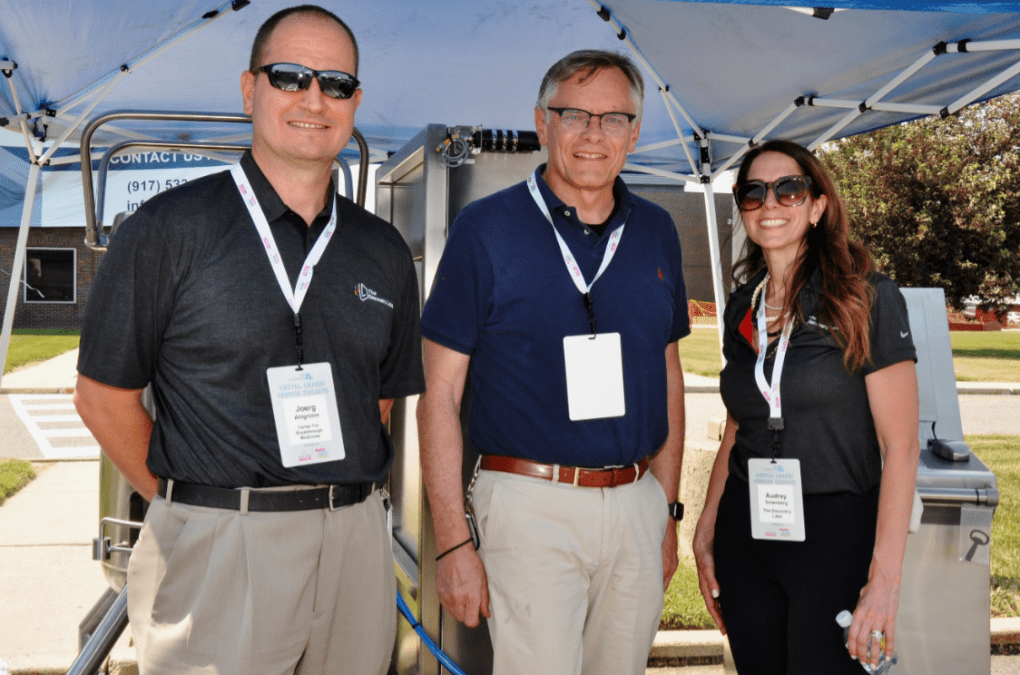
UPenn Gene Therapy Program Joining Discovery Labs Ecosystem
Discovery Labs suburban Philadelphia campus gained a new tenant, the University of Pennsylvania Gene Therapy Program (GTP), which focuses on the development of AAV-based gene therapies for rare and orphan genetic diseases with high unmet needs.
The Gene Therapy Program, helmed by Dr. James M. Wilson, will become an anchor tenant for the Discovery Labs’ emerging seven-million-square-foot life sciences cluster in Cellicon Valley, the moniker given to the Philadelphia region due to the significant presence of cell and gene therapy companies.

The site in King of Prussia, a Philadelphia suburb, provides additional space for vector operations, including two dedicated floors for the expanded Penn Vector Core, which is a full-service viral vector core facility that produces viral-based vectors for gene transfer. The Penn Vector Core has deep expertise in state-of-the-art vector technology for basic research applications that advance understanding of gene function and the development of therapeutic vectors.
Wilson told BioBuzz the expanded space provided by Discovery Labs comes at a pivotal time in the gene therapy field as the world is on the cusp of potential cures for some diseases through gene therapies. Wilson, the Director of the Gene Therapy Program and a Professor of Medicine and Pediatrics at the Perelman School of Medicine at the University of Pennsylvania, pointed to the biomedical infrastructure and near-ready space at Discovery Labs as a key reason to set up shop there. Also, he said the site is relatively close to the Gene Therapy Program’s existing spaces in University City.
“It provides enhanced capabilities, such as large-scale vector production and more high-throughput research manufacturing for pre-clinical projects,” Wilson said.
The 150,000 square feet of lab space of space GTP will take over at Discovery Labs will provide support for the program’s discovery research all the way through submission of an Investigational New Drug Application to the U.S. Food and Drug Administration ahead of the start of clinical trials. Additionally, GTP will have more capacity for non-clinical proof-of-concept research, large-scale vector production activities and expanded high-throughput research manufacturing for pre-clinical projects. GTP also said it will have space for platform development and process optimization, assay development and qualification, quality control testing, and technical transfer.
GTP is the latest company to join the Discovery Labs’ family. Penn Medicine joins GlaxoSmithKline, WuXi Biologics and the Center for Breakthrough Medicines on the biotech innovation campus. The GTP space is also located next to the Discovery Labs’ 700,000-square-foot Innovation Renaissance campus, which includes the Thomas Jefferson University Health and Children’s Hospital of Philadelphia.
Audrey Greenberg, Co-founder and Executive Managing Director of The Discovery Labs and Center for Breakthrough Medicines, said their goal is to have a first-of-its-kind scientific community that will become one of the largest and best biotech hubs in the world.
“This is important not just for the region, but for the world and the patients who are desperately waiting for these new treatments,” Greenberg told BioBuzz. “Penn Med is joining a first-class life science group of carefully curated tenants.”
By bringing these disparate companies and their human capital to one location, Greenberg said it increases opportunities for collaboration. This unique scientific community of scientists, research institutions and innovator companies are designed to foster collaboration to unlock groundbreaking technologies and therapies
Although the Discovery Labs campus is outside of Philadelphia proper, Greenberg said it is a cornerstone of the Cellicon Valley ecosystem. Discovery Labs is close to an international airport with cold chain storage and sits at the crossroads of major rail and highway arteries. This location also offers convenient access to a huge life science talent pool as well as world-renown academic medical centers.
That sentiment was echoed by Brian O’Neill, Founder and Chairman of Discovery Labs. He said UPenn’s decision to locate its Gene Therapy Program at Discovery Labs is a strong validation for the “incredible life science ecosystem that is emerging in Greater Philadelphia.”
GTP is expected to begin moving into its new space within the next six months. Looking ahead, Wilson added that the GTP team of more than 300, whether they will work at the King of Prussia location or at University City, is “poised to continue improving the design and execution of our innovative, transformative therapies.”






